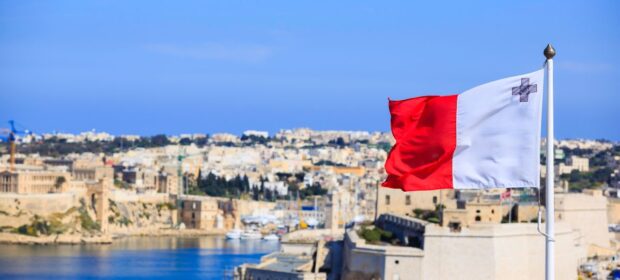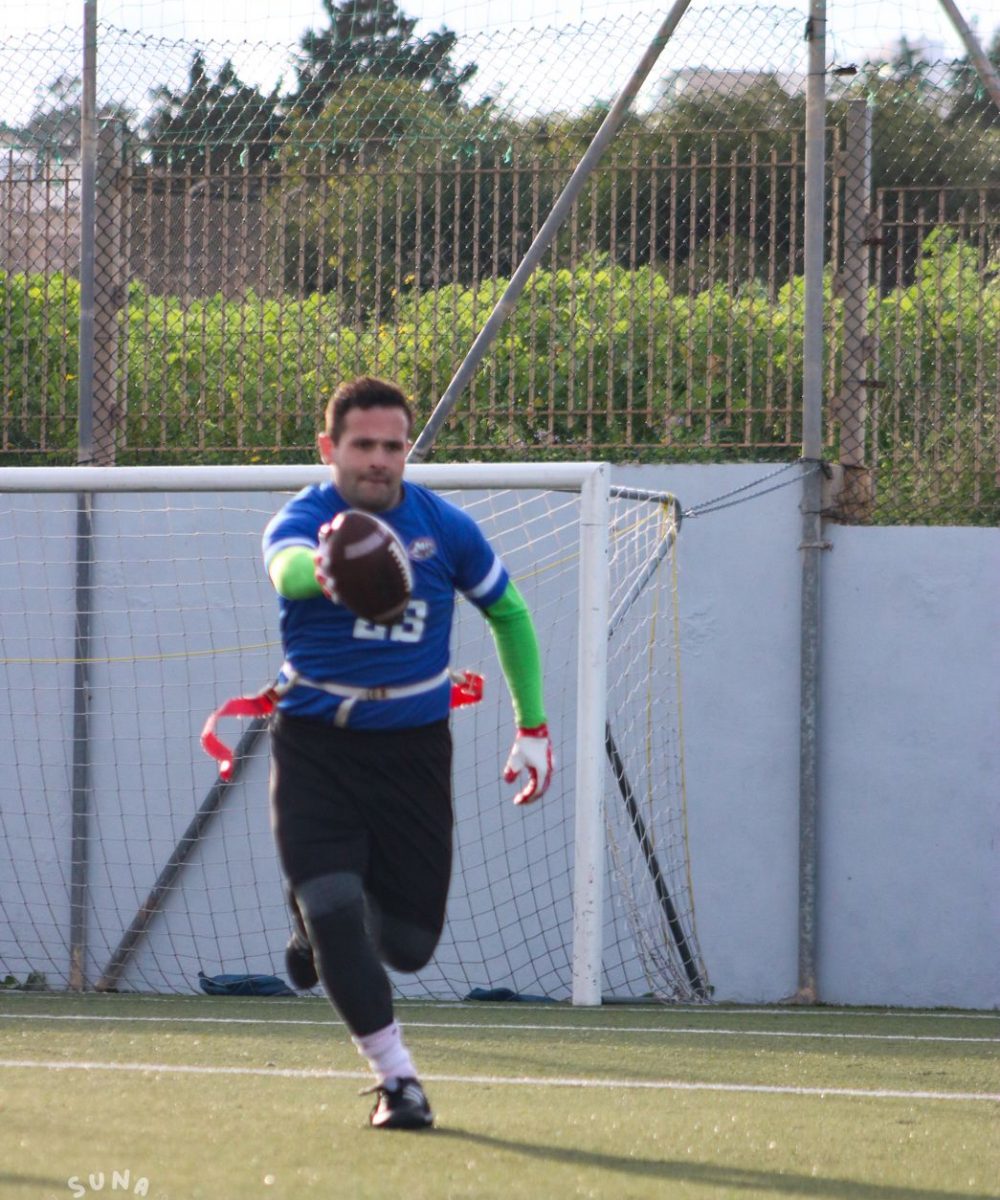The information within this article is for information purposes and is not to be construed as investment advice or recommendation. Please consult with your investment advisor before making any type of investment.
The risk of negativity and diversification
By Jozef Spiteri
This article is published on: 20th May 2024

Each year we are exposed to at least one event that can have an effect on our savings and investments. You may not be old enough to have been around in the ‘good old days’ when there were world wars, and life expectancy of 20 years less than now, but the world has never been short of diseases, viruses, strikes, politicians making crazy decisions, and conflicts, and these can influence the value of our money.
It is not really important for us all to understand the complexities of the different types of investments but it is vital to understand that no investment is immune to short term problems. It is also important to appreciate that, generally speaking, short-term problems should be treated with a long-term view. That is, they should be ignored in the most part. There have been many occasions where some financial experts have been so far off the mark with their forecasts which has created unnecessary losses for those with a tendency to panic.
Speaking of experts, we leave it to those professionals that we associate ourselves with to select the best asset types for our clients’ circumstances. The amount in each asset type can depend on general trends and, although they can buy and sell funds and shares on a daily basis, discovering a trend after one day is pretty tricky.

Of course, headlines get into our heads and we might make decisions that we later live to regret. By employing experts, who in turn will be diversifying your investment funds, you limit the downside when markets, rightly or wrongly, go down, whilst making the most of positive times. As mentioned, we have seen investors lose out because they sell up due to headlines that actually have had no effect on their money. Since the invention of the internet, and certainly since the majority of the planet has been able to use it, the pace of information supply has increased dramatically and, consequently, has affected investment markets. We no longer have to wait for Speckled Jim the carrier pigeon to arrive or sit on a beach looking for a bottle with a message in it. For some older readers from the UK, 50 years ago their knowledge of China may have extended to ordering Special Fried Rice from the local takeaway menu. Now China is one of the major players in the world economy having opened its doors to economic globalisation in the 1970s. We know, today, about events that happened in China, today.
Reducing exposure to negative headlines will help avoid emotionally driven investment decisions that prove to be mistakes. Having an addiction to watching, listening to, or reading the news is not helpful.
Having a financial goal helps to combat the problems we all face. If we understand how much money we need or desire, and when we would like it, this will keep us on track and enable us to bat away any doom and gloom. We often meet clients who are nervous about investing for the future having had issues in the past. Our role is to provide our clients with solutions and a service that are not mind boggling and actually simplify their lives, thinking about the future as well as the present, and to be there whenever our clients need our help.
The Spectrum IFA Group Limited is licensed to provide investment services, under the Investment Services Act, by the Malta Financial Services Authority.
Property is not the only option
By Jozef Spiteri
This article is published on: 20th April 2024

The information within this article is for information purposes and is not to be construed as investment advice or recommendation. Please consult with your investment advisor before making any type of investment.
I have been working as a financial adviser for over two years, during which time I have had many meetings and discussions with clients and investment professionals. Views of course vary on how best to achieve investment success without taking unnecessary risk.
One topic which often comes up in discussion is whether owning a rental property is likely to produce higher returns than a conventional multi-asset investment portfolio (with exposure to global stock markets, bonds, commodities, commercial property and cash).
When faced with this question, my answer is always simple – if your finances allow, why not invest in both, over time? For most of us, particularly when younger, we don’t have the resources (or expertise) to invest extensively (or successfully) in rental property and conventional multi-asset portfolios. However, if and when circumstances allow, having exposure to both can provide valuable diversification and reliable income streams from unrelated sources. Conversely, over-exposure to a single type of investment creates excessive risk and vulnerability in our finances.
Let’s say you have a pot of €500,000 to invest which you might have accumulated over time, or perhaps inherited. Investing exclusively in rental property might seem sensible, and safe, but such a decision should always recognise the longer-term expenses associated with property ownership. In calculating a realistic rental yield, as a landlord it is essential to take into account maintenance bills, occupation/vacancy rates (seldom is a property occupied for the duration of ownership), refurbishment costs, possibly letting agent fees and insurance premiums, tax liabilities and other expenses, all of which of course dilutes the eventual return, often significantly.
Now you might consider putting your money into technology stocks (the NASDAQ index has averaged around 15% pa over the past 10 years), or crypto currency. The potential returns are highly appealing indeed, but perhaps you would be underestimating the levels of volatility, and the risks of dramatic losses, that come with such speculative investing. Is that something you can afford, financially and psychologically?

Big bets can be rewarding, or ruinous.
Alternatively, you could spread your investment across a diverse range of holdings – from international equities (shares) to fixed interest (corporate and government bonds), to commercial real estate, to infrastructure projects, commodities, and cash – through a professionally managed multi-asset portfolio. A well-run strategy will balance capital growth with capital protection and be fully aligned with your personal risk profile. With appropriate advice, and a disciplined, long-term approach, it is entirely possible to achieve investment success without taking undue risk.
Forget get-rich-quick. Patience pays.
And consider too that bricks and mortar alone are not necessarily the foundation for achieving financial security. To accumulate wealth through investment, it is often diversification that produces the greatest rewards.
Our recommendations to clients vary on a case-to-case basis.
To discuss your circumstances and investment planning options, please get in touch. Our initial consultations are free of charge and entirely without obligation.
The Spectrum IFA Group Limited is licensed to provide investment services, under the Investment Services Act, by the Malta Financial Services Authority.
Are high fees affecting performance?
By Jozef Spiteri
This article is published on: 18th April 2024

The information within this article is for information purposes and is not to be construed as investment advice or recommendation. Please consult with your investment advisor before making any type of investment.
The investment industry has always been highly competitive. Financial advisers globally are continually seeking solutions which are both attractive and able to fully meet their clients’ expectations – not always an easy task.
When selecting investment solutions for clients, it is essential to propose a strategy capable of delivering meaningful returns.
Controlling cost is also important.
When looking to invest with the help of an adviser, or on your own, you may be faced with different layers of fees, and it is critical that you understand each specific charge and the all-inclusive cost. You will for example need to consider adviser servicing fees, platform fees and fund fees. You should be fully aware of all costs before investing. Excessive expense will dilute investment performance, so care is needed to optimise prospects for growth, immediately and longer term.
At Spectrum we discuss fees with prospective clients in the first meeting as we feel this is the best way to start off a relationship. Transparency is key and this helps clients feel more comfortable and well-informed. The fees for our service are highly competitive as we have access to the most cost effective funds and products, with no ties to any particular product provider or fund manager. By ensuring the fees are at the lowest level possible we will be helping clients as they will not be unnecessarily penalised, resulting in better returns.
If you are unsure of whether you are currently invested in products paying high fees or are comparing options and do not know what to do, feel free to reach out to us. We would be glad to explain everything in simple and transparent terms. We do not charge for our initial meeting, and you are not obliged to become a client.
The Spectrum IFA Group Limited is licensed to provide investment services, under the Investment Services Act, by the Malta Financial Services Authority.
Spectrum’s Investment License in Malta
By Jozef Spiteri
This article is published on: 16th April 2024

The information within this article is for information purposes and is not to be construed as investment advice or recommendation. Please consult with your investment advisor before making any type of investment.
At Spectrum we always keep up with the constantly evolving regulatory dynamic which has become a dominant feature of the financial services industry over recent years (decades in fact). This is of vital importance to give our clients peace of mind and to allow us to continue delivering comprehensive and fully compliant investment solutions in Malta and across Europe.
The latest measure taken to bolster our range of services was obtaining a MiFID investment license from the Malta Financial Services Authority. This was a lengthy but worthwhile exercise to ensure that our clients, throughout the EU, continue to benefit from our extensive investment experience, from initial advice recommendations through to ongoing monitoring and support.
The use of this license has not only been limited to the countries where Spectrum is physically present (Spain, France, Italy, Luxembourg, Switzerland, Portugal and Malta) but also to other European jurisdictions, meaning Spectrum is now able to reach and service a much wider audience than before.
From lump sum investments to regular savings, pensions (QROPS and SIPPs), portfolio reviews and investment management guidance, we can engage with clients and identify the most appropriate solutions for their circumstances. In fact, many expats across the EU with QROPS pensions have been left without an adviser due to recent regulatory changes requiring that a MiFID-licensed adviser is appointed. Helping people manage their QROPS is a key part of our business, so we wanted to ensure that we could continue to assist these clients, both existing clients and those who be looking for an adviser. Therefore, being MiFID compliant is not only good news for us but will also give our clientele peace of mind that we will be here for them for the long haul.
If you would like to discuss your own situation and explore options for protecting your long-term financial security, feel free to reach out to us. All initial meetings are free of charge and do not hold any obligation to proceed.
The Spectrum IFA Group Limited is licensed to provide investment services, under the Investment Services Act, by the Malta Financial Services Authority.
Tax Efficient Investing for Expats in Malta
By Craig Welsh
This article is published on: 30th January 2024

Many expats living in Malta will be deemed ‘non-domicile’, which means that while you are indeed ‘tax resident’ in Malta, you are also ‘non-domiciled’. This can be great news for your investment portfolio.
And as interest rates on cash deposits may well have peaked, Craig Welsh, who manages our Malta office, explains how expats can take advantage.
KEY TAKEAWAYS
- If you are living in Malta but are classed as ‘non-domicile’, then you can benefit from tax-free growth on your investment portfolio
- We help clients build tax-efficient investment portfolios according to their circumstances and risk profile
- Set aside an emergency fund of around 6-12 months expenses plus money for any upcoming purchases, then consider investing the remainder for longer-term growth
- Equities (shares) have comfortably beaten cash returns over the long-term, and interest rates look to have peaked
Investing should be with a view to the long-term and we do not recommend investing unless you have a ‘time horizon’ of at least 5 years. That simply means you don’t plan to access the money within that period. Markets go up and down, and you don’t want to be accessing your capital at the wrong time.
So – build up cash reserves which would cover your living expenses for 6-12 months. You can earn some interest on that these days, but leave it accessible. Also – if you are planning a major purchase (for e.g. wedding, car, or a property deposit) then that should also be left in cash.
Invest for Long-Term Growth
Once the emergency fund is taken care of, additional money can be invested. At Spectrum, we take you through a careful risk profiling exercise as well as discussing any sustainability preferences you may have.
We then help our clients find the most suitable, tax-efficient ‘wrapper’ and build a diversified portfolio of investments with the aim of long-term capital growth.
Inflation has dipped, and it looks like cash interest rates have peaked. No one has a crystal ball of course, but that could be good news for global markets in general. What we do know is that equities/shares have comfortably beaten cash returns over the long-term.
Our clients have access to mutual funds which have a track record of steady and consistent long-term returns. For the more adventurous investor looking for higher long-term returns, other funds / tracker-type solutions are also available.
If you would like to discuss your investment requirements, then don’t hesitate to contact Craig at craig.welsh@spectrum-ifa.com or on +356 9933 8271.
Expatriate life in Malta
By Jozef Spiteri
This article is published on: 31st August 2023

When expats think about possible destinations for settling down and retiring, several factors come into play. Apart from Malta’s attractive Mediterranean climate, English-speaking locals and great connections to other European cities, the financial advantages associated with living here should also be considered.
When looking at Malta, apart from the obvious desirable features of the island, there are various visa programs available, offering a range of tax-efficient solutions specifically aimed at expats.
The following are just some of the options available:
Malta Retirement Programme (MRP)
This program is available to EU and non-EU nationals (including EEA and Swiss nationals) who are not employed and receiving a pension as regular income.
Beneficiaries of the MRP will be granted a special tax status with pension income remitted to Malta taxed at a flat rate of 15%, whilst other income arising in Malta will be taxed at a flat rate of 35%.
This can be very attractive for expat retirees who are paying significantly higher tax rates on their pension incomes in other countries.
Although they cannot be employed as such, those retirees on the MRP can hold non-executive roles on boards of companies based in Malta, and they can also engage in activities related to any institution, foundation or trust of a public nature (for example educational, philanthropic, or research and development work in Malta)
Professional advice should always be sought on suitability to personal circumstances.
Digital Nomad Visa
Many professionals are now working remotely – why not do so from a sunny island in the Mediterranean? This visa is valid for ‘third country’ individuals (non-EU, non-EEA, non-Swiss) who are either partners or employed with a company located outside the country. Consultants advising entities outside Malta are also eligible to apply.
The main requirement is that applicants must be earning a minimum of €2,700 per month.
Applicants who are accepted will also be allowed to bring over spouses and dependent children to live in Malta. These individuals will be able to take advantage of all that Malta has to offer, including hassle free travel to other Schengen countries.
A key advantage of this program is that no tax is payable within its first year. Again, professional advice is recommended.

Citizenship by Investment
This program is targeted at ultra-high net worth individuals who are willing to make a minimum contribution of €600,000 to the national development fund set up by the local government and who have been Maltese resident for 36 months. Another option is also available, requiring a contribution of €750,000 but with a lower residency condition of 12 months. Additionally, applicants must contribute a further €50,000 for each dependent included in their application.
€700,000 will also have to be invested into residential real estate or a rental contract of €16,000 per year will have to be established and maintained for five years. A donation of €10,000 will also have to be made to a registered philanthropic, cultural, sporting, scientific, animal welfare or artistic non-governmental approved organisation/society.
This will lead to citizenship and a Maltese passport after one to three years of residency, which by default also brings European citizenship, enabling these individuals to live, work and study anywhere in the EU.
Malta Permanent Resident Scheme
This program is a straightforward residency by investment program. The processing time for applications is four to six months from the submission of a correct and complete application form. The program is particularly valuable for prospects intending to make Malta their second home.
To be eligible for the MPRP, applicants should:
• be a third country national (non-EU, non-EEA, non-Swiss)
• not hail from sanctioned countries, as announced from time to time by the Community Malta Agency
• not benefit under other pertinent regulations and schemes
• have sufficient financial resources to maintain themselves and their dependants without recourse to the social assistance system of Malta
• show they have capital assets of not less than €500,000, out of which a minimum of €150,000 must be financial assets
• be fit-and-proper individuals and have a clean criminal record
• not pose any potential threat to national security, public policy, public health or public interest
Global Residency Program
The GRP is designed for non-EU, non-EEA or non-Swiss nationals who are not long-term Maltese residents. Individuals applying for the program can work in Malta if they satisfy the necessary conditions to obtain a work permit.
Successful applicants may also have household staff providing services in their qualifying property if all requisite conditions are met.
If you would like to know more about these programs feel free to contact our team in Malta. We can outline the various options and determine suitability to your circumstances. All initial meetings and discussions are free of charge and carry no obligation to proceed.
Spectrum sponsors the Malta Flag Football League
By Jozef Spiteri
This article is published on: 18th April 2023

Between December 2022 and March 2023, the inaugural season of the Malta Flag Football League was held which saw four teams battle it out for the title. One of the teams participating was our very own Tigné Tigers. The other teams taking part were the Balluta Ballers, Simpl Lords and Enteractive Kings.
During the regular season the Tigers were dominant. Their versatile plays on offense and no-nonsense defence led them to win five out of their 6 matches, moving on into the playoffs comfortably holding the number 1 seed.
In the semi-finals the Tigers faced a resilient Simpl Lords team. The game was neck and neck in the first half but in the second half some good defence saw the Tigers maintain a slight cushion over their opponents. The match ultimately had to end a few seconds early due to an injury being sustained by one of the Simpl Lord players, leaving them with insufficient players to play on. The other semi-final saw Balluta Ballers progress after a forfeit from Enteractive Kings.
The final between the Tigers and Ballers was very tight, but the Tigers great defence seemed to be the difference between the two teams. This meant that after a great encounter, the Tigné Tigers were crowned as the first MFFL champions.
Well done to all those involved, and a special mention to our very own Jozef Spiteri who was the man who organized most of the league.



Income in retirement
By Jozef Spiteri
This article is published on: 21st March 2023

Following the previous article where we saw how investing can be used to increase levels of savings in retirement, we will now focus on how invested funds can be of added benefit when it comes to drawing an income in retirement.
We shall be making use of the same three scenarios we saw in the last article, where John had to choose between keeping all savings in cash, investing in a balanced risk portfolio or investing in a more adventurous portfolio.
In the first scenario John was left with cash reserves of €911,186 at retirement.
In retirement John aims to maintain his lifestyle whilst also taking two big trips annually with his partner. An estimated drawdown of €50,000 per year should allow this. In this case, cash reserves would last John 18 years. Considering that people nowadays are living longer, John will have some tough decisions to make. This may involve reducing the withdrawals made each year in order to stretch the funds as much as possible. Therefore, John will find it very difficult to maintain the retirement he wanted.
Looking at scenario 2, John will have an investment pot of €1,375,757 at retirement growing at 4% per year. If he were to withdraw €50,000 a year, this would represent a 3.6% annual withdrawal. This would mean that he would be taking out most of the average growth being achieved annually, which will more or less have his portfolio increasing by 0.4% per year net of drawdown. This will mean that John will not only be able to lead the life he wishes but also have a valuable cushion to protect against unexpected expenses which could arise in future.
The potential cushion with scenario 3 could be even greater with a savings pot of € 1,845,763 at retirement and an investment growing at an average 6% per year. John will be making an annual withdrawal of 2.7% of his portfolio leaving a net growth of 3.3% per year after drawdown. It’s often the case however that a more ‘balanced’ risk approach is taken in retirement.
This example illustrates the power of investment not only before, but during, retirement – compound returns within a properly planned investment strategy will often contribute towards achieving a secure and comfortable retirement.
The above are simplified examples and for illustrative purposes only. For a more detailed outline of how we implement successful investment strategies, please contact us to arrange an introductory discussion.
Cash flow planning
By Jozef Spiteri
This article is published on: 13th March 2023

Cash flow planning is an exercise which could benefit individuals of any age, be it people just starting out their independent lives or others approaching retirement. Understanding how much money you have and the best way for you to use it is vital, and many seem to underestimate the power of good, constructive planning.
It is important to consider how surplus money can be used more efficiently. Surplus money refers to reserves of cash over and above any emergency fund held in a bank account. How can one use these resources more efficiently? What difference will it make?
Keeping excess funds in cash will result in the value of that money being eroded, as no meaningful growth will be achieved. Therefore, one must find a way to grow this money and protect it against inflation by generating positive real returns.
For many, investing might seem unnecessary, complicated, or risky. Such a mentality is usually the result of misconceptions. The reality is that the current environment is not what our parents or grandparents experienced when growing up; what worked 20 or 30 years ago might not work as well today.
We will now compare three scenarios for the same person. These examples will indicate the level of savings this individual would have at retirement if keeping all savings in cash, investing in a balanced risk portfolio or investing in a more adventurous portfolio.

In this example we have John, an average working man who went to university until age 25 and then worked until age 68. John started off with an average wage at the beginning of his career, with limited income and unable to buy a property or secure a sizeable mortgage. In his late 20’s he then managed to take out a mortgage for his own place. He only started to earn a decent level of income in his early 30’s, and this is the point at which he had to choose between investing this income or saving in cash. Therefore, John had the ability to save and invest for around 35 years prior to retirement. Let us now see what the differences are if he chose to invest or not.
If John left all surplus income in cash, he would reach retirement with a savings pot of €911,186. This means that he will have to plan his cost of living based this amount, together with the lowly public pension he will earn, until he passes away. If John were to spend around €40,000 a year (in today’s money) from his savings in retirement, the money would last him around 22 years. This is assuming that John is only maintaining his lifestyle and not accounting for eventual medical costs which could arise, or other unforeseen expenses. Therefore, what might seem to be a substantial amount of cash does not really give John a lot of ‘wiggle room’.
Let us now consider a balanced risk portfolio for John, starting contributions at age 32. If John were to invest around €20,000 a year until retirement, growing at an average rate of 4% per year, he would accumulate a savings pot of €1,375,757. This would give John an additional €464,571 compared to the scenario where he saved in cash, with the added advantage that the money invested will offer further growth potential during retirement, allowing him to maintain a buffer, further extending the longevity of his funds.
Alternatively, if John were to consider a more adventurous portfolio, with the same level of contributions and years of investment, his eventual savings pot would achieve a value of €1,845,763 – nearly a million euros more than if he chose not to invest at all.
This example highlights the power of compounding returns, and the importance of good financial planning. This is a service we offer all clients and together we can identify the best way to meet your goals. If you would like to discuss your financial future, feel free to get in touch.
The above are simplified examples and for illustrative purposes only. For a more detailed outline of how we implement successful investment strategies, please contact us to arrange an introductory discussion.
Bonds – still a low-risk investment?
By Jozef Spiteri
This article is published on: 5th May 2022

Are bonds going out of fashion?
Bonds, which are fixed income instruments, are probably one of the most popular asset classes along with equities, and have been used by organisations to raise funds for many years. Because these instruments pay regular interest (coupons), they are attractive to investors, but are bond investments really as good as people think they are?
Let’s begin by defining what bonds actually are. A bond is a debt instrument, meaning that the organisation that issues them, be it a government or a private corporation, is obtaining a loan from the general public. The reason for opting to get a loan from the public rather than a traditional bank is simple; they will pay less interest making it a much cheaper method to finance a project. An example of a bond would be one maturing in 10 years’ time, paying an annual interest rate (coupon) of 2.5%. This simply means that if an investor had to purchase €1,000 worth of this bond issue, they will receive €25 per year for 10 years and they will get the initial amount (principal) of €1,000 back at maturity. The fact that money is being received every year tends to deceive investors. The truth is, for a coupon as low as 2.5% they will just be moving in line with inflation, which has been around 2-3% in recent years and has started to creep up in recent months. This means that with such an investment they are not adding value to their wealth and actually risk losing value.

After reading this you might be wondering what investments could help you beat inflation.
Over the past 10 years the asset classes that have performed the best have been US equities and REITs (Real Estate Investment Trusts) (www.blackrock.com/corporate/insights/blackrock-investment-institute/interactive-charts/return-map).
Debt, or bonds, has been one of the weakest performers across the board, and this has contributed to the fall in popularity of this asset class. The best approach would be to invest in a diversified basket of assets with well-established fund managers, with a track record of good returns. This will not only reduce the risk of bad performance and value destruction thanks to inflation, but will also give you exposure to higher returns.
If you are interested in discussing this matter further, or any other topic, feel free to reach out to one of our advisers. We will be more than happy to sit down with you and go over all the questions you might have.
We do not charge any fees for our initial consultations and there is no obligation to proceed further.

